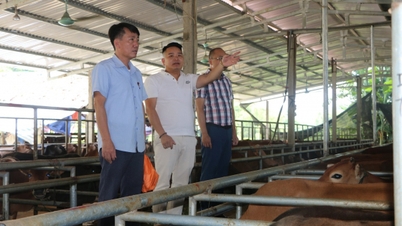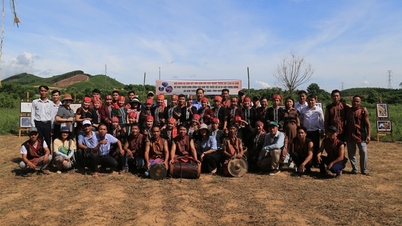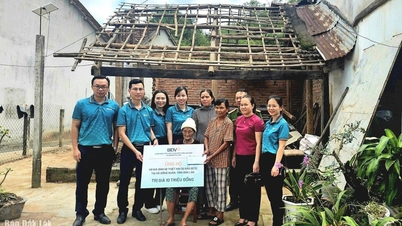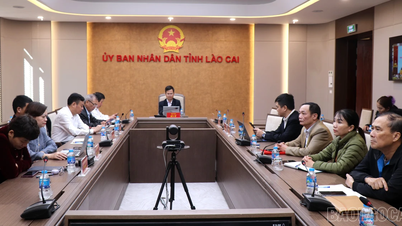Intellectual progress in the draft documents submitted to the 14th Congress
Currently, Vietnam has more than 940 thousand private enterprises in operation, accounting for about 98% of the total number of enterprises in the country. In addition, we also have more than 5 million individual business households and more than 30 thousand cooperatives. The private economic sector contributes about 50% of the gross domestic product (GDP), more than 30% of the total state budget revenue, and employs about 82% of the labor force.
The draft documents of the 14th National Party Congress mark a fundamental change in the perception and policy of private economic development in Vietnam. For the first time in the congress documents, the private economy is identified as the “most important driving force” of the economy, surpassing the previous view that it was only “one of the driving forces”. This shows a profound change in thinking about the role and position of the private economic sector in the country’s socio-economic development.
 |
| Facilitate private economic access to resources. Photo: vneconomy.vn |
Identifying the private economy as a key driving force is not only symbolic but also emphasizes the Party's long-term commitment to creating favorable, fair and transparent conditions for the development of this sector. In addition to the leading role of the state economy, the private economy is expected to maximize its potential, contributing to creating dynamic and sustainable growth through innovation, digital transformation and global integration.
The draft also particularly emphasizes the role of entrepreneurs and large private enterprises as economic locomotives, promoting global value chains and participating deeply in key economic sectors. Training high-quality human resources and innovative entrepreneurship are focused on as key factors for the private sector to adapt and develop strongly in the context of globalization and the 4.0 Industrial Revolution.
The above fundamental innovative thinking contents are drawn from the practical experience of nearly 40 years of innovation, and are both achievements and new challenges for institutionalizing new visions and new policies, ensuring harmonious and effective development among economic sectors in the socialist-oriented market economy in Vietnam.
Current status and challenges in private economic development
Despite great strides in awareness and policy, Vietnam's private economy is still facing many limitations and challenges from development practices. In addition to the largest private enterprises in Vietnam in 2025, based on the scale of assets, revenue and influence in the market, such as Vingroup, Hoa Phat, THACO (Truong Hai), Masan , FPT, Mobile World (MWG), Techcombank, VPBank, Thanh Cong (TC Group)..., the majority of private enterprises in Vietnam are small and medium-sized, even micro-sized, with modest scale and limited financial capacity. High-quality human resources and weak management skills make it difficult for enterprises to promote creativity, technological innovation, and take advantage of opportunities to expand international markets.
Institutions and the business environment are not really synchronous and transparent. Administrative procedures generate informal costs, "request-grant" relationships and legal barriers reduce private enterprises' confidence in the fairness and transparency of the market. Access to capital and input resources such as land, technology, information, especially venture capital and long-term capital for innovative and digital transformation enterprises is still difficult, limiting the breakthrough development of this sector.
Furthermore, unfair competition, monopoly, and the "backyard" of "interest groups" undermine the legitimate rights of genuine private enterprises, distort the market, and reduce the competitiveness of the economy. Along with that, the transformation of the traditional growth model from heavily dependent on resources and cheap labor to growth based on science , technology, and innovation is taking place quite slowly, posing an urgent need to promote innovation in the growth model in the private sector.
Breakthrough and synchronous solutions are needed to promote the potential of the private economy.
To truly turn the private economy into the core driving force of the economy with the specific goal that by 2030 we will have about 2 million private enterprises operating, contributing about 55-58% of GDP, becoming one of the main driving forces of the national economy, the draft document needs to be further completed with breakthrough and synchronous solutions to remove bottlenecks in institutions, policies and implementation mechanisms.
First of all, building an investment and business environment that is transparent, fair and effective is the top priority. It is necessary to review and simplify administrative procedures, reduce informal costs, and create a level playing field between private enterprises and state-owned enterprises and enterprises with foreign direct investment (FDI). At the same time, perfect the legal framework to protect property rights and legitimate business rights, and strictly handle acts of monopoly, market manipulation, and “interest groups” and “backyards”.
The policy of developing large-scale private enterprises and enhancing international competitiveness needs to be clearly institutionalized. The goal of developing at least 20 large private corporations with regional and international competitiveness by 2030 is an important long-term strategic target. To achieve this goal, the State needs to strongly support, on the basis of the "cost-effectiveness" problem, the formation and development of leading private corporations capable of participating in the global value chain, promoting innovation and digital transformation through State orders, using "seed capital" for investment from the budget, investment forms in the form of public-private partnerships (PPP) for large, important national projects, and encouraging the development of dual-use high-tech industries.
Should we allow private enterprises to produce and do business in any field that is not prohibited by law, proactively implement a controlled testing mechanism (sandbox), and have a mechanism to allow innovative technology startups and technology unicorns to IPO (initial public offering) to raise capital in the domestic capital market when there are clear development prospects?
High-quality human resources and innovative entrepreneurship must also be prioritized for development through specialized training programs, talent attraction policies, and creating a favorable environment for a sustainable development trajectory. At the same time, it is necessary to expand preferential capital access mechanisms, develop long-term capital and venture capital to support businesses in investing in new technology, digital transformation, green economy and digital economy.
Strengthening dialogue, transparency and close coordination between the State and private enterprises in building and adjusting mechanisms and policies will be the key to ensuring effective implementation and innovation in increasingly modern and flexible economic management thinking. In particular, it is necessary to pay attention to the role of social and legal criticism in protecting the legitimate rights and interests of private enterprises, creating a fair competitive environment, and enhancing national competitiveness in the context of international integration./.
Source: https://baosonla.vn/kinh-te/phat-trien-kinh-te-tu-nhan-dong-luc-quan-trong-nhat-cho-su-thinh-vuong-cua-dat-nuoc-LHZKK7mDg.html





![[Photo] Action for the Community tells stories of enduring journeys – both intimate and great, yet quiet and determined](https://vphoto.vietnam.vn/thumb/1200x675/vietnam/resource/IMAGE/2025/11/15/1763179022035_ai-dai-dieu-5828-jpg.webp)





































































































Comment (0)